Holocaust survivor speaks to freshman class
The last male Holocaust survivor in Houston recently visited SJS campus to speak to the Class of 2021, giving students the rare opportunity to speak with an individual who experienced the Holocaust firsthand.
On Friday, Oct. 20, Bill Orlin, a survivor of the Holocaust and a Korean War veteran, spoke to the freshman class. English I students recently finished Night, a memoir written by a former prisoner of a concentration camp, Elie Wiesel. Night and Orlin’s story share parallels, like brutality and discrimination from Nazi soldiers, but the two told vastly different accounts, Orlin’s being more positive.
Orlin, who spoke during the da Vinci period in the Chao Assembly Room, shared his life story with students and answered a list of prewritten student questions. He described his childhood in a small Jewish town in Poland, the onset of German occupation, and the fulfillment he eventually found as a U.S. citizen.
Born in a small Jewish community in Poland in 1932, Orlin experienced prejudice from a young age. German forces invaded Poland and his quaint town of Brok in 1939.
Orlin recalls clearly the next morning while surveying the ravaged community when he saw one of his grandmother’s good friends, dead. She had burned alive. Sadly, those who had stayed had been taken to a nearby town and drowned. Many years later, Orlin visited Yad Vashem, a Holocaust memorial, and museum in Israel. He found that of 864 Jews that lived in his hometown, just thirty survived the great tragedy.
The following day, German soldiers ordered all Jews to assemble and told them to march. The remaining Jews had no idea their fate or where they were headed. Orlin’s group, after an extended march in the harsh cold, were taken to a clearing where two German soldiers with machine guns waited.
They stood interminably, afraid and frozen in their place. Finally, they were let go, but not before a Nazi soldier severed his grandfather’s beard. A highly religious man and an Orthodox Jew, Orlin’s grandfather was highly offended by this act and protested. He was met with a strike to the face by a soldier and the words, “God is with us.”
English department head Rachel Weissenstein, who helped coordinate the event, notes how fortunate the St. John’s community was to be able to host Orlin. Orlin is the last surviving male member of the Houston Holocaust Museum’s Speakers Bureau.
“Mr. Beard and I agree that this was a really wonderful opportunity that unfortunately won’t exist for future generations,” Weissenstein said. “We feel really special.”
Because Orlin spoke during the da Vinci period, members of ensembles were unable to attend the event.
“I was really displeased with the school’s decision to schedule the speaker on the same day as ensemble,” freshman Anne-Charlotte Gillard said. “I think we missed out on a rare opportunity to hear about the Holocaust from an actual survivor.”
Although the timing was not ideal, students and faculty agreed that bringing such a speaker to campus had a great impact.
“It’s so unique in that way, with its horrors,” Boyd said. “Having someone who lived through this story be able to look you in the eye and share real stories and an intimate portrayal of what life was like is really special, to be able to give students and even me that opportunity.”
According to freshman English teacher Kemberly Kemp, students were highly attentive and respectful during the speech.
“It was just wonderful to see the student response,” Kemp said. “The benefit for me as a teacher was seeing how they hung onto his every word.”
Orlin’s words resonated with students because students were able to identify similarities between what they read in Night and Orlin’s accounts.
“It lead me to be able to picture and imagine what it must have been like, knowing that a living example of someone who had survived was standing right in front of me,” freshman Karli Fisher said.
At one point, Orlin recalled an instance where a Nazi soldier severed his grandfather’s beard. As a highly religious man and an Orthodox Jew, Orlin’s grandfather was highly offended by this act and protested. He was met with a strike to the face by a soldier.
“I was shocked that they would do that,” freshman Jonathan Gordon said. “It made me realize that what we were reading in Night was real.”
Students acknowledge that learning about the atrocities committed during WWII is necessary so that history will not repeat itself.
“Mr. Orlin’s experience of running away and living in fear during WWII was a reminder of the human capability to hate. I was very grateful that Mr. Orlin came and spoke to us because his story prevents that time in history from being lost or forgotten,” freshman Nat Larsen comments.
Teachers recognized the importance of having Orlin speak to students.
“This particular story, Night, is about an unimaginable tragedy, and it’s hard, just inherently, to imagine a tragedy like that by its nature,” freshman English teacher Max Boyd said. “Any opportunity to be able to make something seem tangible and real is an outstanding opportunity to bring a story to life.”
The connections between Orlin’s story and Night brought the story to life for attendees.
“We read a lot of fiction in high school, and that’s wonderful, but sometimes when we read books that are real, like Night that describe situations that are unimaginably horrible, it’s easy to think of it as fiction,” Weissenstein said. “A book can only go so far; there is something really important added by seeing someone stand up in front of you, and it all becomes very real.”
Students hope that the school will continue to invite such speakers so they can gain similar experiences.
“I hope we can have more events like that in the future,” freshman Rachel Tompson said. “It really helped me learn on a deeper level, and it was a much more enjoyable and exciting approach to the material.”
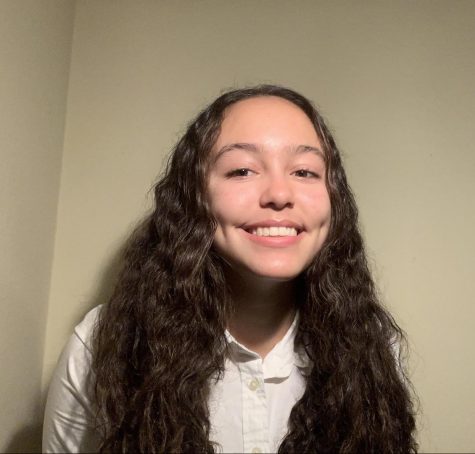
Noura Jabir is a senior in her fourth year on Review. She enjoys swimming in natural bodies of water, and she’d like to meet Danny DeVito.





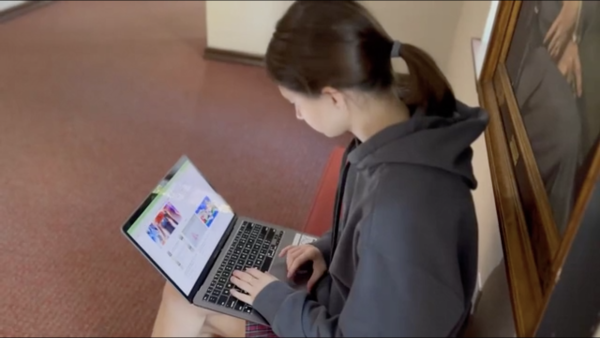
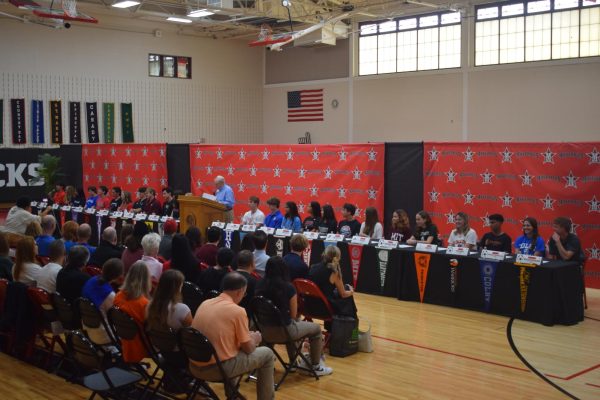
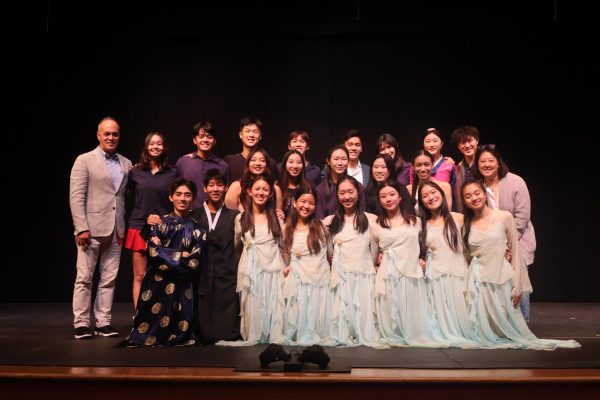
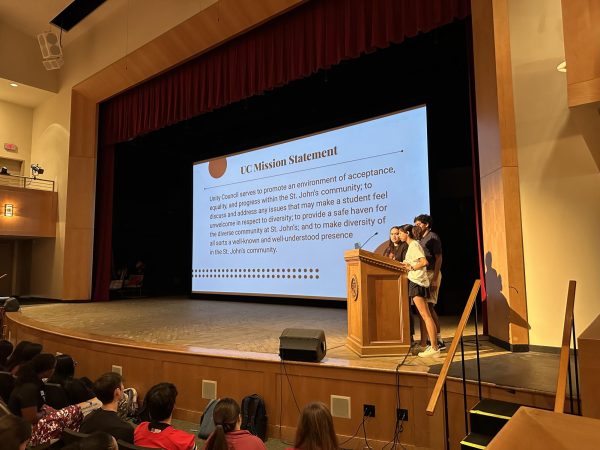

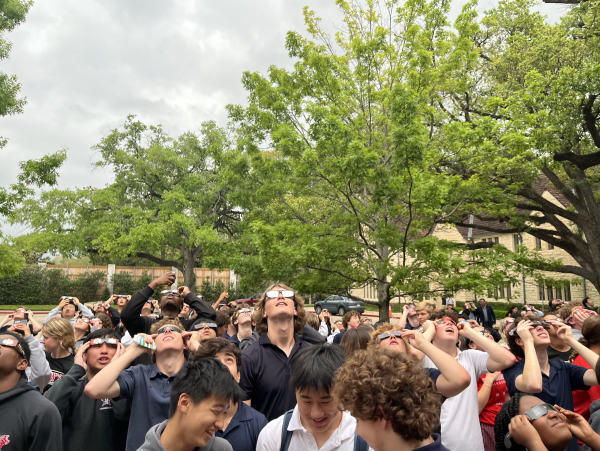
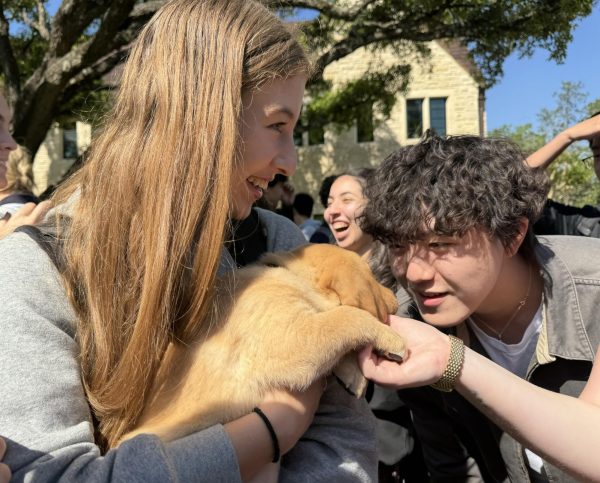

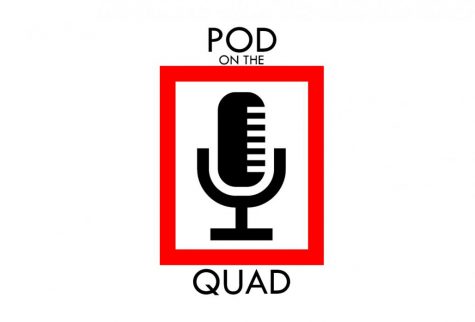
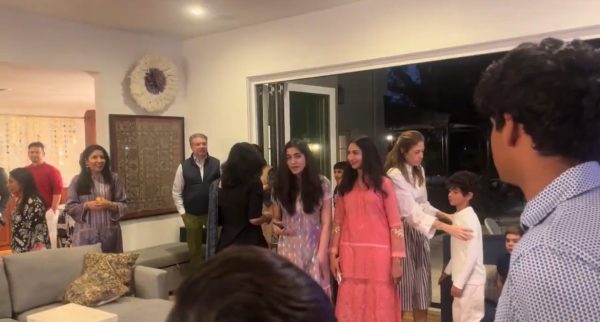


Susie Wolf • Apr 15, 2021 at 10:07 PM
Thank you for this article and thanks to SJS for having Mr. Orlin address the students. I’m an SJS Alum and am involved with the Annual Holocaust Remembrance activities each year in the Houston area. Mr. Orlin just spoke at this annual commemorative event and shared his life’s journey.
Such a blessing that St. John’s School continues to raise awareness. May it never be again. Grateful to the Lord for the quality education students continue to receive and the encouraged involvement in activities; community awareness and engagement.
Susan (Susie) Wolf, Class of 1980